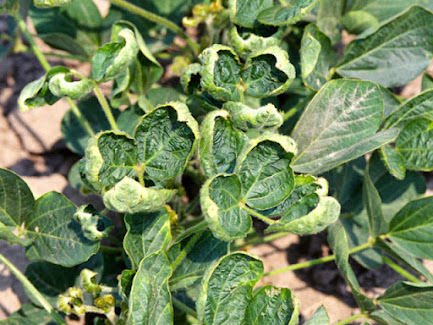Dicamba Market Announces Rise in Industry Demand, Future Prospects and Applications 2030
Dicamba is a herbicide that is used to control broadleaf weeds in agricultural fields, non-crop areas, and residential lawns. It is a synthetic compound that works by mimicking the action of a plant hormone called auxin, which regulates plant growth.
The growth of the dicamba market can be attributed to several factors, including the rising demand for food due to the growing global population, the need for higher crop yields to meet this demand, and the increasing adoption of genetically modified crops that are resistant to dicamba. Additionally, the growing concerns about weed resistance to traditional herbicides have also driven the demand for dicamba as a more effective alternative. The dicamba market refers to the global market for the herbicide dicamba, which is used to control broadleaf weeds in agricultural crops, non-crop areas, and residential lawns. Dicamba is a synthetic herbicide that mimics the action of a plant hormone called auxin, which regulates plant growth.
Key companies covered as a part of this study includes BASF SE, Monsanto Company, E I du Pont de Nemours & Company, Bayer AG, The Dow Chemical Company, Syngenta AG, and Nufarm Limited
The demand for dicamba in the market is driven by its effectiveness in controlling broadleaf weeds, particularly in soybean and cotton crops. Dicamba is widely used in agriculture to manage weeds and increase crop yields. It is also used in non-crop areas, such as roadsides, railways, and industrial sites, to control weeds and unwanted vegetation.
The demand for dicamba is increasing due to the growing global population, which is driving the need for higher food production. Dicamba is an effective tool for farmers to control weeds and improve crop yields. Additionally, the increasing adoption of genetically modified crops that are resistant to dicamba has also driven the demand for this herbicide.
However, the demand for dicamba has also been affected by the controversies surrounding its use, particularly its potential to drift and damage neighboring crops. This has led to stricter regulations and restrictions on the use of dicamba in some countries, which may impact the demand for dicamba in the future.
The dicamba market offers several benefits to farmers, agricultural businesses, and the overall food industry. Some of the benefits of the dicamba market include:
Effective weed control: Dicamba is an effective herbicide that controls a wide range of broadleaf weeds, including many weeds that are resistant to other herbicides. This helps farmers improve their crop yields and reduce the impact of weeds on their crops.
Increased crop yields: By controlling weeds effectively, dicamba helps farmers increase their crop yields. This is especially important in areas where weed infestations can significantly reduce crop yields.
Reduced labor costs: Using dicamba can reduce the need for manual weed control, which can be time-consuming and expensive. This helps farmers save on labor costs and increase their efficiency.
Cost-effective: Dicamba is cost-effective compared to other herbicides, which makes it an attractive option for farmers who are looking for a reliable weed control solution.
Wide range of applications: Dicamba can be used in a variety of crops, including soybeans, cotton, wheat, and corn, as well as in non-crop areas such as roadsides and industrial sites. This makes it a versatile herbicide for different types of farming operations.
While there are concerns about the potential negative impacts of dicamba on the environment and human health, the benefits of the dicamba market for farmers and the agriculture industry cannot be ignored. The key is to balance these benefits with effective regulations and best management practices to minimize any negative impacts on the environment and neighboring crops.



.png)
Comments
Post a Comment